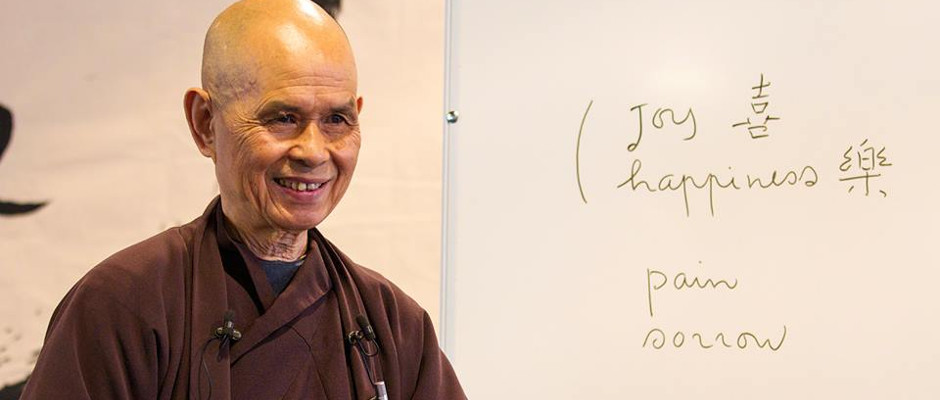Thay, as he is known, has taught often on death and how it is neither an end nor a beginning, just a change in appearance. Focusing on interdependence, or interbeing, he teaches that conditions have come together to create this form that we consider to be ourselves, and when that form no longer functions, what is us will become something else. He even wrote a book called "No Death, No Fear."
There are contemplations on death throughout Buddhist teachings, from meditations that ask us to imagine the decomposition of our bodies, organ by organ, to rituals performed in charnel grounds using instruments made from human bones.
Death is inevitable; it comes without warning. ... This body will be a corpse.
So why, when faced with the death, do Buddhists turn to prayers for the person's recovery?
Thich Nhat Hanh is 88 years old. He had a severe brain hemorrhage. He has been an extraordinary teacher, an example of kindness, compassion, and forgiveness, a proponent of mindfulness. Why not let him go?
I have no answers, just a couple of thoughts.
-- Thay has been an extraordinary teacher who has touched many people deeply. Those people want to continue to receive his teachings and hope that even more people may be affected by him. That would, without question, make the world a better place.
-- Accepting death doesn't mean denying grief. To those whose hearts have been touched by Thay or whose lives have been changed by his teachings, his passing will be a cause for grief. Grief hurts. But it's how we know that someone has been important to us, that their absence leaves a space that is filled for a time by sadness.
I was reminded of that this week when I got the news that a friend had died. She wasn't a close friend, someone I'd worked with years ago, but we were Facebook friends with similar interests. I was used to her vibrant smile and her enthusiasm showing up there. And it was painful to learn that this 30-something woman whose last Facebook post was about her excitement at starting to plan an annual event for a local LGBTQ center was gone.
Every morning I recite a version of the four thoughts that turn the mind to liberation. The second, impermanence, includes this:
Everyone who is born will die. My death is certain; the exact time is unknown. Knowing this, what is most important?
The answer, inevitably, is that being present with life and the people in it is most important. If every conversation could be the last time we talk, then I want to be there fully, not biding time until I can check my email, not thinking about what other people might think about how I look, not reviewing a conversation with someone else a day ago.
Plum Village, Thay's monastery, provides updates on his condition. They include suggestions for how his followers can practice to support him:
Please continue to enjoy the blue sky for Thầy, the fresh morning air and the small pathways in nature for Thầy. Especially, please enjoy each other, your loved ones, and our togetherness for Thầy.
If possible, you can dedicate a day to eat vegetarian as a way to generate compassion to send to Thầy. You can reconcile with your loved ones, or to let go of your resentment of someone and write them a love letter. And in the same Winter Retreat spirit being practiced at our monasteries, you can participate in your local Sangha more, support the collective energy of mindfulness, consume less and reduce your time online.


No comments:
Post a Comment